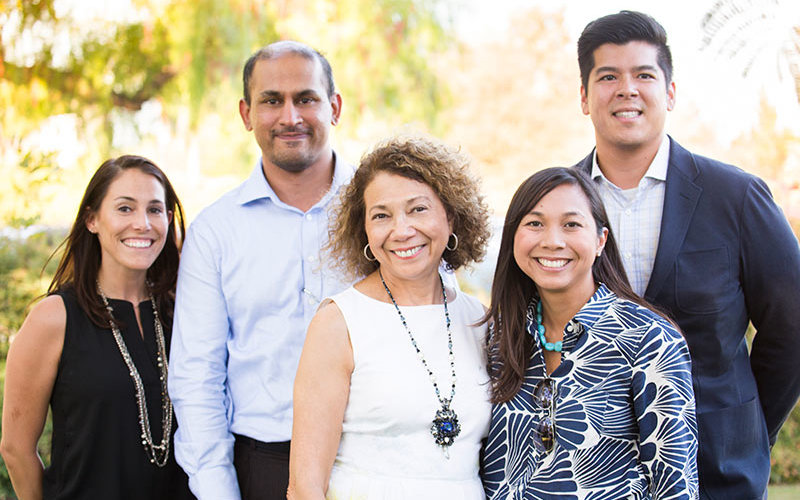
For faculty looking for assistance and support — from diversity training and how to improve student feedback to how to integrate accessible instructional materials into the curriculum and how to use Titanium — there is now a one-stop place to go: Faculty Support Services (FSS).
Now centrally located on the second floor of the Pollak Library, FSS encompasses Faculty Affairs and Records, the Faculty Development Center, Academic Technology Center, and Online Education and Training.
“FSS was formed with the mission of how the University can best support faculty,” explains Kristin Stang, interim assistant vice president for Faculty Support Services. “We dually report to both Information Technology and Academic Affairs, and we serve as partners with other departments across campus.”
Since its formation, FSS has reached out to create collaborative programs that would benefit faculty seeking specific information, says Stang. An upcoming example: new faculty orientation.
“This year, we are introducing a welcome meeting with the college deans, followed by a tea where faculty members have an opportunity to get to know other faculty in their college cohorts and deans in a relaxed atmosphere,” Stang explains. “On Wednesday of the orientation, we again will host a resource fair where all new faculty members (both full and part time) will be able to talk with representatives from various faculty organizations, union leadership, payroll and benefits personnel, campus banks, etc.
“In September, for the first time, the Faculty Development Center will host a celebration for faculty who are entering their second year on campus,” she adds.
Continuing offerings are faculty learning communities, training and workshops, as well as special programs to serve the needs of beginning and mid-career faculty and lecturers, including certificate programs on high-impact practices and diversity and inclusion. Emeriti, teaching and graduate assistants are welcome to take part.
“We are working to create a space where faculty know they come for support and we’re interested in learning about what they need, so we can continue to better serve their needs,” says Stang. “All the directors of our centers are faculty members and we know that together in partnership with each other and with others, we can provide a vital service that helps us all provide a better learning experience for our students.”
The Faculty Support Services is located in the Faculty Commons on the second floor of the Pollak Library. Centers and their leadership are:
- Faculty Development Center — Erica Bowers, director and professor of literacy and reading education
- Online Education and Training — Shelli Wynants, director and lecturer in child and adolescent studies
- Academic Technology Center — John Carroll, interim director and associate professor of geography and the environment
- Faculty Affairs and Records — Ed Collom, director and former chair and professor of sociology at Cal State San Bernardino